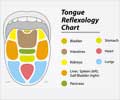A child with cleft lip/palate faces predisposing factors to acquiring dental tooth decay. A new study reviews the literature and provides strategies for early prevention
A child with cleft lip/palate faces predisposing factors to acquiring dental tooth decay. A new study reviews the literature and provides strategies for early prevention. The study is published in the latest Cleft Palate–Craniofacial Journal.
Cleft lip/palate is the most common congenital craniofacial abnormality, affecting 1 in every 700 newborns. Patients with cleft conditions generally display poorer oral hygiene and high susceptibility to caries, or tooth decay, because of the difficulty in achieving adequate plaque control associated with dental anomalies and defects. Therefore, it is key that parents and their children with clefts learn and practice effective oral hygiene.The study’s researchers presented eight strategies for early prevention. They are: 1. Assess mother’s oral health and dietary habits before the birth of the child.
2. Make contact with the dentist of the cleft lip/palate team who can encourage good feeding habits and general oral health.
3. Use chemotherapeutic products to clean intraoral appliances when removed from mouth.
4. Avoid kissing the baby’s lips and sharing food and utensils.
5. Brush teeth at least once a day.
6. Have regular dental examinations every 6 months. Fluoride supplements in nonfluoridated areas are recommended.
7. Reassess oral hygiene, sugar intake, frequency of snacking and consumption of acidic drinks before beginning orthodontic treatment and modify as needed. Rinse daily with a low dose of 0.05% sodium fluoride.
8. Brush weekly with 0.2% chlorhexidine gel to reduce infection and enamel lesions.
By beginning even before birth, patients with cleft lip/palate can lessen the chance of dental caries by adopting the above strategies. Preventive dental care is even more important in patients with cleft problems compared with patients without clefts.
Source-Newswise
SRM











